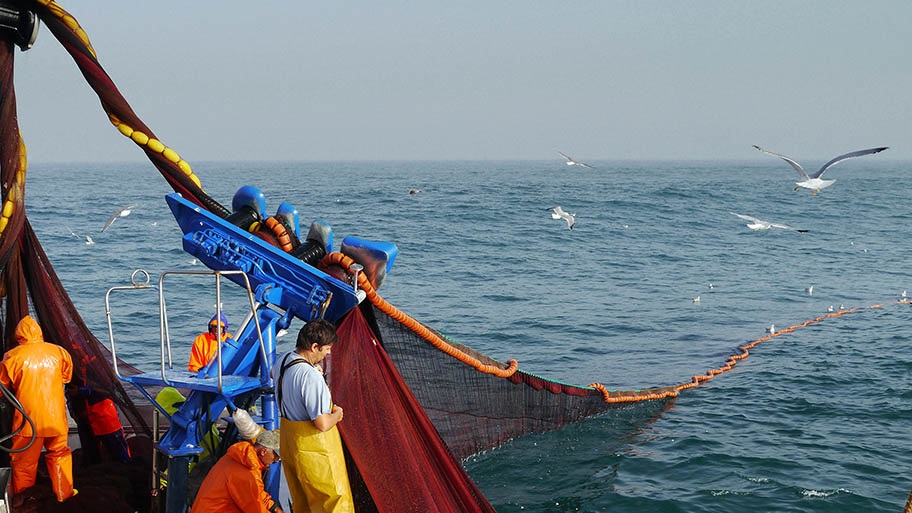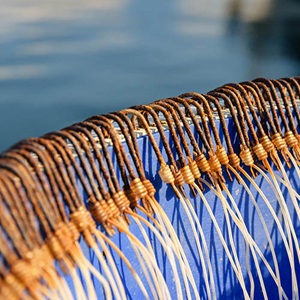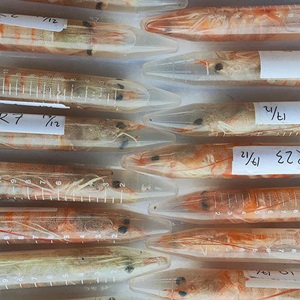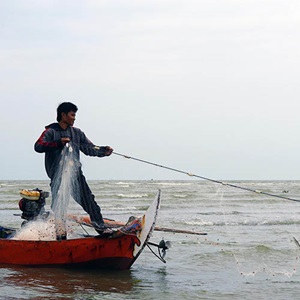An iconic fishery aims for sustainability using entire ecosystem-based management rules for sardine stocks in the Atlantic Ocean.
• An updated ecosystem model that includes predator consumption of sardines in the stock management strategy evaluation
• Develop a more robust ecosystem-wide management plan
• Improve stakeholder engagement with expert supervision
Start date: September 2025
£9,300 GBP
Student Research Grant
Awardee
Inês Rebolo Martins, PhD candidate, University of Vigo and Instituto Português do Mar e da Atmosfera (IPMA).
Fishery
Iberian sardine purse seine fishery
Considering sardines' role in the ecosystem
Sardines (Sardina pilchardus) are icons of the Iberian Peninsula, not only are these small oily fish emblematic of its rich maritime history and of huge economic significance, but they are scientifically designated as a key low trophic level (KLTL) or ‘keystone’ species in the Atlantic marine ecosystem.
Keystone species are organisms that are the main food of predators higher up the food chain, and whose removal could lead to ecosystem collapse. Therefore, the management of sardine stocks must consider the needs of the entire ecosystem for it to be deemed sustainable.
The Iberian sardine purse seine fishery comprises Portuguese and Spanish fishing associations from the Peninsula. The fishery is currently undergoing assessment for certification to the MSC Fisheries Standard, that has extra stringent and precautionary requirements for fisheries that target KLTL species.
To be certified sustainable and pass assessment, the fishery must adapt its current management plan and develop scientifically robust harvest control rules that demonstrate the stock is being fished at levels that will not cause serious disruption to the ecosystem.

What the project will do
To integrate ecosystem considerations into the fishery’s Management Strategy Evaluation process, the fishery is working on a project with scientists from the Instituto Português do Mar e da Atmosfera (IPMA - Portuguese Institute for Sea and Atmosphere).
Supporting the fishery in meeting its sustainability goals, PhD candidate Inês Martins has been selected to receive a Student Research Grant for her project, from the MSC Ocean Stewardship Fund. Martins’ research project is part funded through a donation to the OSF by retailer Carrefour Italy and seafood brand Delicius.
The project will specifically assess natural sardine mortality linked to predator consumption by acquiring more knowledge of its ecological impact, with explicit consideration to sardines’ role within the ecosystem.
The data will then be incorporated into the fishery’s Management Strategy Evaluation and subsequently inform robust harvest strategies that are resilient under environmental and ecosystem change.
The project outcomes will ensure sardine abundance is sustainable for the needs of the predators and Iberian fishing communities that depend on the sardine stock for their livelihoods.
“This funding is exciting because it will enable me to contribute meaningfully to the advancement of ecosystem-based fisheries management for the Iberian sardine stock. This support is crucial for developing scientifically robust and policy-relevant ecosystem model and is an invaluable opportunity.”
Related projects

Aegean longline: Minimising interactions with endangered species

Indonesia Central Java prawn: Researching genetics

